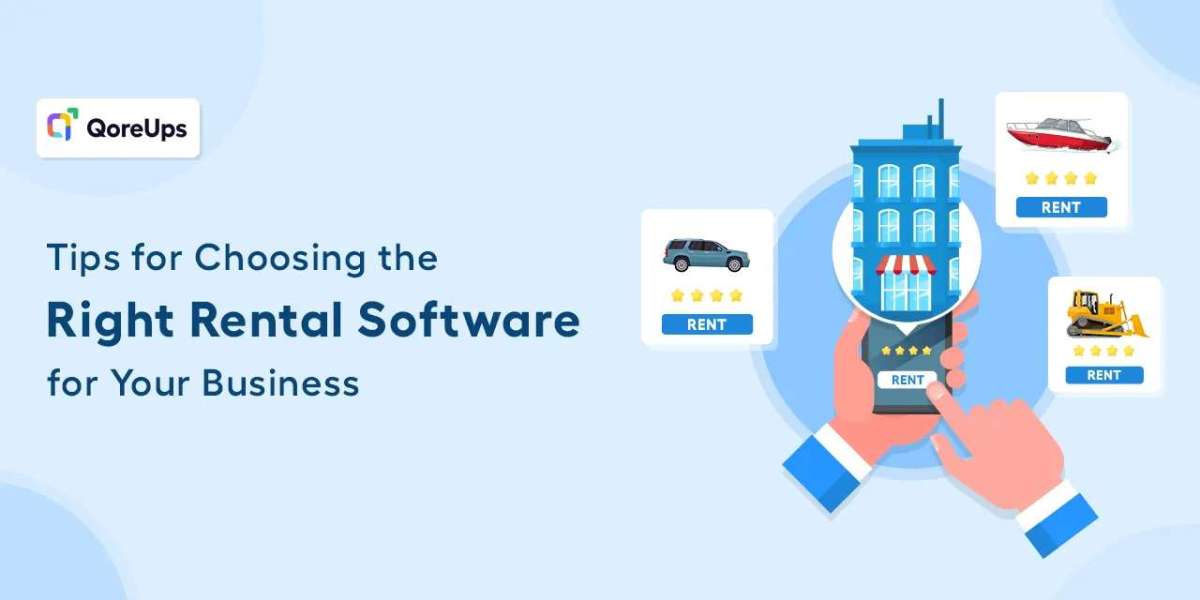In today’s digitally connected world, rental businesses need more than just manual tracking and spreadsheets to stay competitive.
You might run a car rental service, equipment leasing company, or vacation property business, but the right rental software can make all the difference.
From automating the booking process to managing inventory seamlessly, a well-chosen software solution can save a lot of time, significantly reduce errors, and enhance customer satisfaction.
But with so many options available in the software market, how do you pick the right one?
This guide will walk you through the key factors you must consider to pick a rental software that perfectly suits your needs.
Let’s get started…
What is Rental Software?
Rental software is a specialized digital solution designed to help businesses manage their rental operations efficiently.
Regardless of whether you run a car rental service, an equipment rental business, a property rental agency, or any other rental-oriented operation, utilizing the appropriate software can significantly improve efficiency, automate tasks, and elevate the overall experience for your customers.
A potent rental software typically comes with essential features such as:
- inventory tracking
- booking management
- payment processing
- customer relationship management (CRM).
Importance of Using Rental Software
Equipping rental software is essential for businesses that deal with short-term or long-term rentals. The reasons are listed below:
1. Automation of Operations
Manual handling of bookings, inventory, and customer management can be time-consuming and prone to errors.
Rental software simply automates these processes, reducing human intervention and improving efficiency.
2. Improved Inventory Management
Keeping track of available and rented-out items manually can be a daunting task.
A robust rental software helps businesses monitor stock levels, track maintenance schedules, and avoid overbooking or double-booking.
3. Enhanced Customer Experience
Rental software solutions offer simplified online booking and payment options, making it easy for customers to reserve and rent out products or services at their convenience.
4. Better Financial Management
Rental software often integrates with accounting tools, helping businesses manage invoices, track payments, and generate financial reports with ease.
5. Data-Driven Decision Making
With built-in analytics and reporting tools, rental software provides valuable insights into customer behavior, popular rental trends, and business performance.
Tips for Choosing the Right Rental Software for Your Business

Selecting the best rental software for your business requires careful consideration. You need to keep in mind these key factors while choosing the software:
1. User-Friendly Interface
One of the most important factors when choosing rental software is its user-friendliness.
For both your team and customers, the software should be intuitive and easy to navigate.
Complex systems with a steep learning curve can lead to frustration, slow adoption, and inefficiency. Employees should be able to learn how to use the software quickly without needing constant training.
The interface should have clear menus, easy-to-understand icons, and simple workflows.
For customers, easy navigation on the front end is critical as well. An intuitive booking process with clear steps makes for a better user experience and increases the likelihood of repeat business.
2. Inventory Management
An effective rental software solution must provide real-time inventory management option.
This is crucial for businesses that handle multiple rental products, whether it’s equipment, vehicles, or other properties.
Overbooking is a common issue for rental businesses. It can lead to significant losses in revenue and customer satisfaction.
By offering real-time tracking of availability, the software helps prevent double-booking and ensures that customers can only book items that are available at the time they want them.
A good inventory management system will update the availability automatically as bookings are made, and it may also send out alerts when items are running low or need maintenance.
3. Online Booking & Payments
In today’s digital world, customers expect to be able to book rentals online.
As such, online booking and payment integration are vital for rental software.
The ability to make reservations at any time of day is one of the key reasons customers choose online rental booking over traditional services.
The software should enable users to easily browse available items, select dates, and make payments without any complications.
A seamless online booking system should be integrated with a secure payment gateway. This allows customers to complete transactions safely and easily.
Beyond just collecting payments, rental software should also offer flexible payment options. This can include full payment upfront, a deposit, or installment options, depending on the nature of the rental business.
4. Customization Options
No two rental businesses are exactly alike.
Therefore, it’s crucial to pick the rental software that comes with customization options.
The best rental software allows businesses to tailor features, processes, and workflows to match their specific operational needs. This flexibility enables you to adapt the system as your business grows or changes.
Customization can include the ability to modify pricing structures, set rental durations, and define terms and conditions based on the type of item being rented.
For example, a business renting out party equipment may have different pricing rules than one renting vacation homes.
Customizing these details within the software ensures that pricing is aligned with your business model.
5. Multi-Device Access
Multi-device access is increasingly important for rental businesses that want better reach in providing their services.
The right rental software should be cloud-based and allow business owners and staff to manage rental operations from various devices, whether they are at the office, on the go, or in the field.
Furthermore, mobile-friendly features like GPS tracking for delivery or pickup scheduling, online booking, and real-time communication with customers can enhance business efficiency.
For customers, the ability to book rentals through a mobile-friendly interface can increase satisfaction and lead to higher conversion rates.
6. Scalability
As your rental business grows, so will your software needs.
Scalability is a key consideration when selecting rental software. Ensure that the software can accommodate an increasing volume of transactions, new inventory, or multiple locations without sacrificing performance or requiring a complete overhaul.
Scalable rental software should allow you to easily add more users, integrate new products, and expand into different markets or regions.
It should be able to handle an increase in customer traffic, manage a larger inventory, and offer robust reporting tools to track the performance of different aspects of your business.
Scalability also involves the ability to add new features as your needs evolve, whether that’s adding new payment methods, expanding your product catalog, or integrating with new third-party tools.
7. API Integrations
Finally, the ability to connect rental software with other business tools is crucial.
API integrations enable your software to work with a variety of third-party services, such as payment gateways, email marketing platforms, accounting software, and customer relationship management (CRM) tools.
For example, integrating payment gateways like PayPal or Stripe can provide customers with more options for paying for their rentals.
Similarly, API integrations with CRM tools allow you to manage customer relationships more effectively by tracking customer interactions and automating follow-up emails or promotions.
Additionally, integrating with marketing tools can help you create targeted campaigns, track marketing efforts, and improve customer acquisition.
By offering API integration capabilities, the software provides a flexible and adaptable solution that can connect your rental business with the broader tech ecosystem.
Conclusion
Selecting the proper rental management software is a crucial decision that can impact your business’s efficiency, customer satisfaction, and profitability.
- Understand your business needs.
- Prioritize essential features.
- And evaluate different options in the market.
Take the time to research, test, and compare software solutions before making a final decision.








